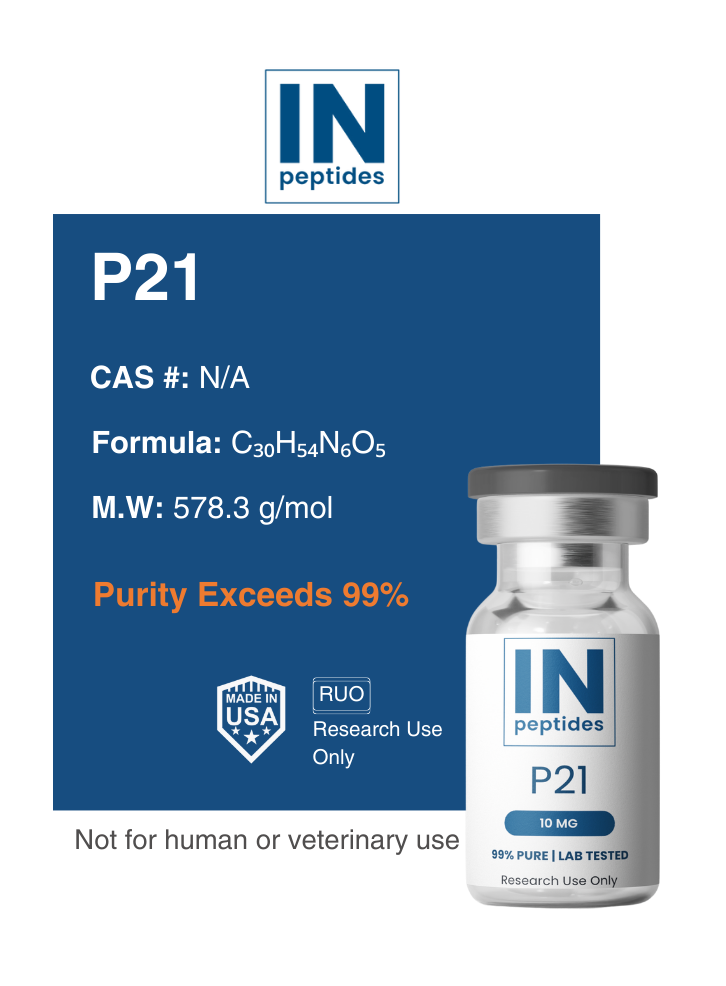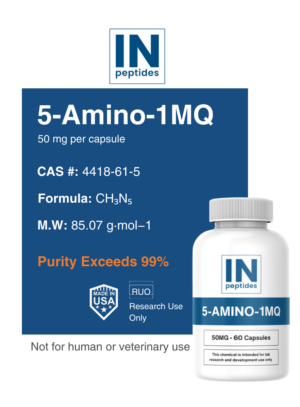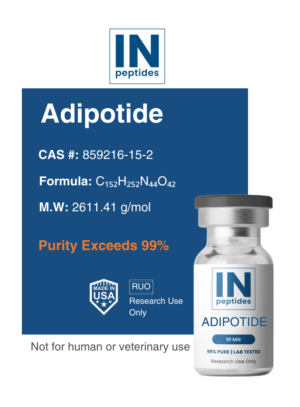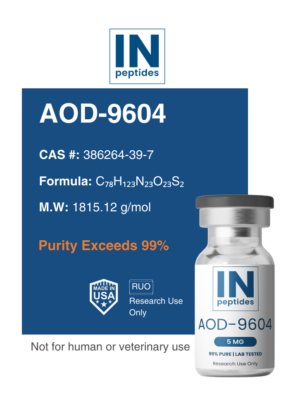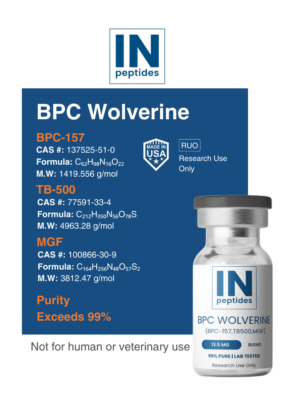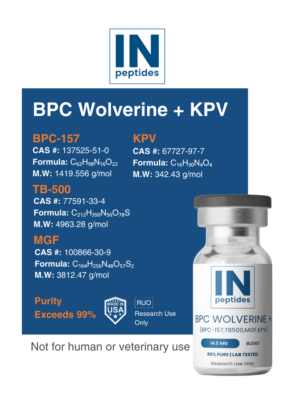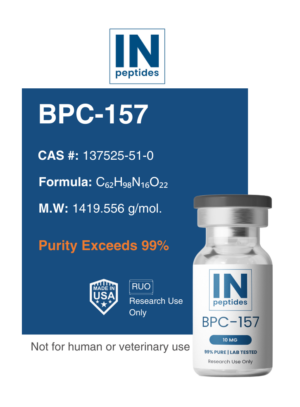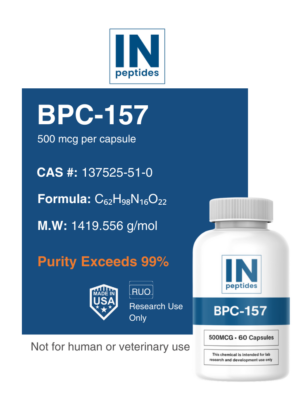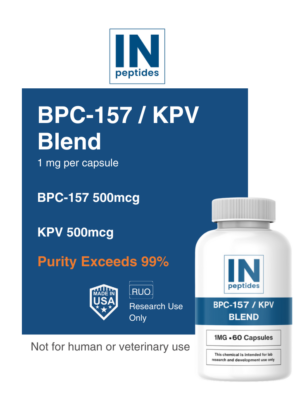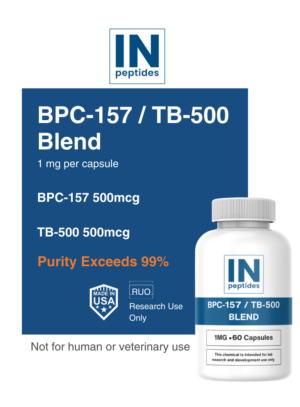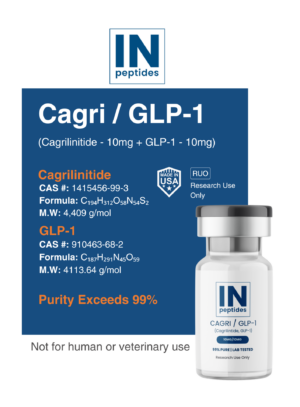P21 – 10mg
$50.00
P21
P21, also known as CDKN1A, is a protein that regulates the cell cycle by inhibiting cyclin-dependent kinases (CDKs). It acts as a critical regulator of cell growth, division, and survival. Researchers have also studied its role in aging, tissue regeneration, and cellular stress responses.
Potential Research Applications
P21 is currently being explored in research settings for its role in:
- Cell Cycle Regulation & Cancer Research: Investigated for its ability to control cell cycle progression, which is critical in preventing cancer cell proliferation.
- Aging & Cellular Senescence: Researched for its role in regulating cellular senescence, a state of stable cell cycle arrest, which has implications for aging and age-related diseases.
- Tissue Regeneration & Repair: Studied for its potential to modulate tissue regeneration, especially in the context of cellular stress and injury.
- DNA Damage Response & Repair: Explored for its involvement in DNA repair mechanisms, particularly following cellular damage from oxidative stress or radiation.
- Neurodegenerative Diseases: Investigated for its role in regulating cellular processes related to neurodegeneration, with potential therapeutic implications in diseases such as Alzheimer’s or Parkinson’s.
✔ High-Quality Research Peptide – Produced under stringent quality control standards.
✔ Lab-Tested for Purity – Ensures consistency for scientific studies.
✔ Research Use Only – Not for human consumption or medical applications.
✔ Peptides – Will arrive in a lyophilized (powder) form for maximum stability.
The peptides are available for research and laboratory purposes only. Please review and ahere to our Terms and Conditions before ordering.
- Description
- Certificate of Analysis
The CDKN1A gene encodes P21. It plays a crucial role in controlling the cell cycle. This protein stops the cycle from moving from one phase to the next. As a cyclin-dependent kinase inhibitor, P21 blocks cyclin-CDK2 and cyclin-CDK4 activity.
These complexes drive the transition from the G1 phase to the S phase. By blocking them, P21 prevents uncontrolled cell division. Consequently, it supports cell growth and tumor suppression.
Cells trigger P21 when they experience DNA damage or stress. For example, oxidative stress, UV radiation, and oncogene activation cause cells to produce P21. In addition, p53, a key cell cycle and apoptosis regulator, increases P21 levels.
When cells detect DNA damage, p53 activates and boosts P21. This activation stops the cell cycle, giving cells time to repair their DNA. If the damage is too severe, P21 triggers programmed cell death, known as apoptosis.
Besides controlling the cell cycle, P21 affects other cell functions. It plays roles in apoptosis, cell differentiation, and senescence. Researchers study P21 in aging, cancer, and degenerative diseases. Moreover, they examine its role in keeping cells balanced and preventing mutations that lead to tumors.
Scientists use P21 as a marker for cell responses to DNA damage and stress. They also explore it for cancer therapies, since it can affect cancer cell growth and survival. However, P21 acts differently in various tissues and conditions. Therefore, more studies are needed to fully understand its potential.
For Research Use Only
No Certificate of Analysis images available for this product.

